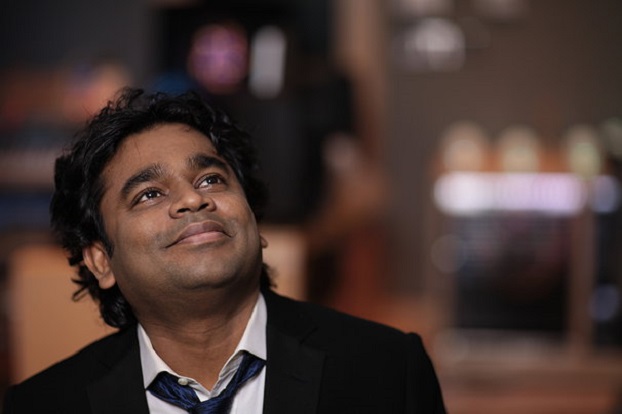
Best known to western audiences for the soundtrack to Slumdog Millionaire, A. R. Rahman is better known to South Asian listeners for a storied line of hits, with over 120 movie scores to his name. Umesh Aggrawal’s documentary Jai Ho on the rise of the famed composer serves up a long view of the breadth of his work, offering something for Rahman fans and newcomers alike.
As might be expected of a film produced by the Diplomacy Division of the Indian Ministry of External Affairs, the movie takes a reverential view of the composer. It begins by briefly touching on his childhood and upbringing before launching into a whirlwind tour of Rahman’s extensive musical repertoire. We roll through Roja, Vande Mataram, Chaiyya Chaiyya, Lagaan, Dil Se — a primer on Rahman’s greatest hits. For those more familiar with his work, the biggest draw here is seeing the evolution of his music, from his introduction of orchestration to his experimentation with synthesizers. Seeing it all at once gives you a whole new appreciation of his prolific genius.
Seeing it all at once gives you a whole new appreciation of his prolific genius.
Getting the famously reticent Rahman to interview for the film was a major coup for Aggarwal. The journey through his music is interspersed with Rahman’s commentary, allowing the personal side of the composer to come through. He discusses his childhood, the passing of his father, his conversion to Islam and his decision to pursue an arranged marriage.
To be clear, this is not a gripping, emotional tell-all. Rahman remains reserved (albeit thoughtful) in recounting his story. Some of the most interesting commentary comes from the directors, singers and composers who worked alongside Rahman and who share details of his hectic and chaotic working style.
Rahman had years of notoriety in India before Slumdog Millionaire was even released, so the name Jai Ho comes across as a decision made with international distribution in mind. As the film progresses, however, it becomes clear Aggarwal is building a narrative of Rahman as a man not constrained by boundaries who effortlessly blends music from East and West. And while the way Andrew Lloyd Weber and Danny Boyle talk of discovering Rahman and his “meditative, spiritual” ways echoes of good old fashioned orientalism, the more appropriate image is of Rahman as the ultimate code-switcher, and Jai Ho the example of his unique ability to bring worlds together.
Jai Ho screens this Saturday, November 1, at 5:15 p.m. at CinéArts in Palo Alto as part of the San Francisco International South Asian Film Festival presented by 3rd i Films. For tickets and information on the rest of Saturday’s festival lineup, visit 3rd i’s website.
* * *
Ashwin Warrior lives in the California Bay Area and works in non-profit communications, promoting social good and supporting progressive causes and organizations. You can follow him on Twitter at @ashwinwarrior and see other things he’s written here.













A R Rahman is a gen of India, is his documentary screening in India? or available on YouTube?